Table of content
Why Is the “i” Lowercase in DISC? Meaning, and Misconceptions
Why is the “i” lowercase in DISC? Discover the history, branding origins, and myths behind the styling choice used in official DiSC assessments.
If you’ve ever looked at the DiSC personality assessment and wondered, why is the i lowercase in DiSC, you’re not alone. At first glance, it might seem like a small design choice—but there’s an interesting history behind it. This subtle detail has nothing to do with the Influence style’s importance and everything to do with branding, publishing, and a surprising mistake that became iconic. In this guide, we’ll uncover the true story, clear up common misconceptions, and explain why the lowercase “i” still matters today.
Origins of DISC Personality Theory
Understanding the roots of the DISC model gives context to both its practical uses and its unique branding. Let’s start with the basics of the DISC assessment before exploring why the i lowercase in DiSC.
Overview of the DISC Assessment
The DISC assessment is a practical framework for understanding how people behave and communicate. It groups behavior into four main personality styles: Dominance (direct and results-driven), Influence (persuasive and people-focused), Steadiness (calm and dependable), and Compliance (detail-oriented and analytical).
This model is widely used in workplaces to improve team communication, strengthen leadership skills, and resolve conflicts. In personal growth, it helps individuals recognize their own tendencies, adapt their approach in different situations, and build stronger relationships by understanding the motivations and needs of others.
Moving from the roots of DISC theory to its modern form brings us to an interesting branding detail—something many ask about: why is the i lowercase in DiSC?
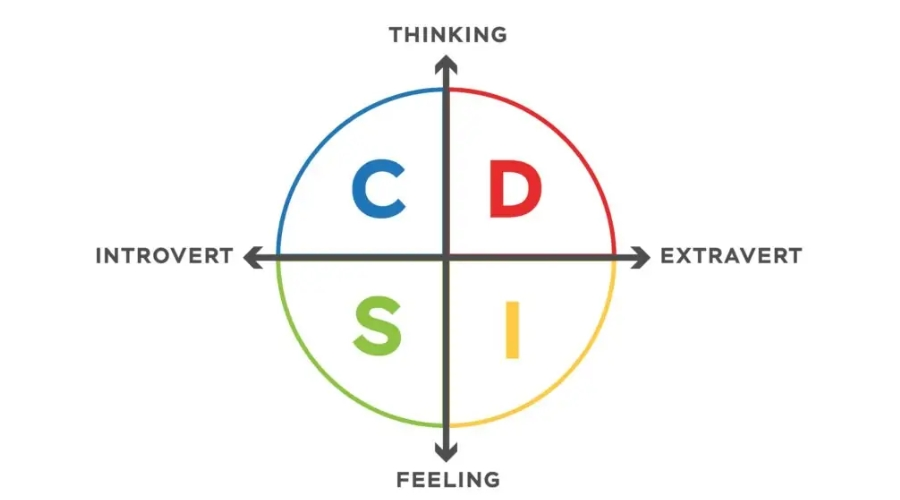
Find out and discover the true meaning behind each letter in DiSC!
From DISC Theory to the Branded DiSC We Know Today
In the 1920s, psychologist William Moulton Marston introduced the DISC model to describe human behavior, but he left no standardized test behind. As the concept gained popularity, various organizations designed their own assessments. One of these publishers, Performax, eventually set its version apart with a simple yet memorable tweak: using a lowercase “i.”
While the exact reason for this change is often linked to a printing quirk in early materials, the choice stuck - not just as a style preference, but as a legally protected trademark. Now owned by Wiley, this lowercase “i” has become a hallmark of their DiSC profile, signaling that you’re looking at their proprietary assessment rather than a generic DISC-based tool.
Why Is the “i” Lowercase in DiSC?
If you’ve ever wondered why is the i lowercase in DiSC, the answer is rooted in a mix of publishing history, trademark strategy, and a simple design accident. Let’s explore where it came from, how it happened, and why it doesn’t change the meaning of the Influence style.
Trademark Origins
Long after William Moulton Marston outlined the DISC behavioral model in the 1920s, the marketplace saw a wave of different assessments inspired by his work. Each publisher sought ways to stand out, experimenting with test formats, names, and designs. Among them, Performax took a bold branding step - presenting “DiSC” with a lowercase “i.”
This subtle change wasn’t just aesthetic. It became a protected trademark, signaling that their assessment was part of a specific, proprietary system. When Wiley later acquired Performax, the distinctive lowercase “i” stayed, cementing its role as both a brand marker and a quick visual cue separating their product from other DISC-inspired tools.
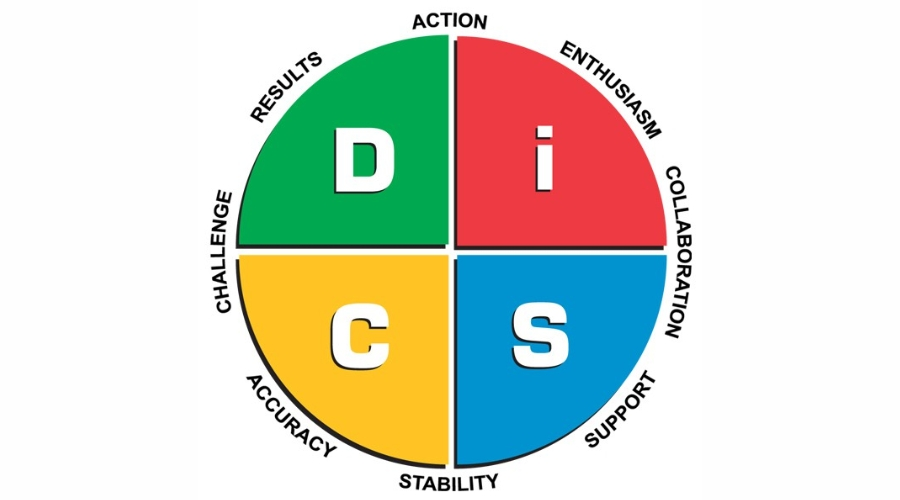
The Lowercase “i” Originated from a Design Mistake
The real story behind why is the i lowercase in DiSC starts with a printing error. When Performax prepared to release the original DISC Personal Profile System, the printer accidentally used a lowercase “i” instead of a capital “I.”
Reprinting would have been costly for the small company, so they decided to keep the “mistake” and turn it into a unique branding feature. Later, they copyrighted “DiSC” with the lowercase “i”, ensuring that it became an intentional part of the product’s identity.
What began as a tiny oversight has now become an enduring trademark used in all Wiley-published DiSC assessments.
The Lowercase “i” Doesn’t Mean Influence Is Less Important
A common misunderstanding about why the i lowercase in DiSC is that it somehow suggests the Influence style is less valuable than Dominance, Steadiness, or Conscientiousness. In truth, the lowercase “i” has nothing to do with the importance of the Influence trait.
The decision was purely about branding and history, not personality theory. Influence remains just as significant in understanding behavior - it highlights how people motivate others, build connections, and inspire collaboration. The style’s power lies in its ability to energize and engage, making it a key part of the DiSC model.
Read more to explore the traits and strengths of the ‘i’ personality in DISC!
Common Misunderstandings and Online Discussions
Although the true origin of the lowercase “i” is tied to a specific publishing incident, many people still speculate about its meaning. These discussions, ranging from humorous theories to branding clarifications, often appear in community forums, training sessions, and even on competing DISC-related websites.
Below are some of the most common points of confusion when people ask why the i lowercase in DiSC.
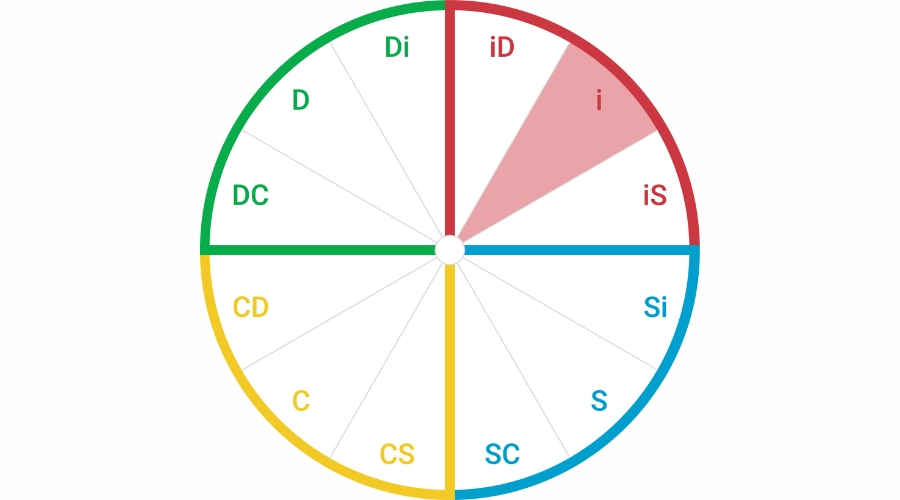
Humble High-I Theory
One frequently mentioned lighthearted idea is that the lowercase “i” was a deliberate choice to make Influence-style individuals appear humble. According to this playful take, reducing the “I” to a smaller form visually reflects the modesty expected of the i-Style personality.
While this explanation is purely a joke and not grounded in fact, it persists in online conversations and casual trainer banter. It’s an example of how humor can take hold in the DiSC community, even when it has nothing to do with the real reason behind why is the i lowercase in DiSC.
Official Use in DiSC Materials
In reality, the lowercase “i” is an intentional and consistent branding choice found in all officially licensed DiSC assessments, facilitator guides, and participant workbooks. It serves as a visual signature that differentiates Wiley’s DiSC products from other DISC-based tools in the marketplace.
This consistency means that whenever someone encounters the lowercase “i” in training resources, they can identify it as part of the official DiSC family.
A clear why is the i lowercase in DISC example can be seen when comparing Wiley’s Everything DiSC Workplace Profile—where the Influence style is written with a lowercase “i”—to other non-Wiley assessments like DISC Personality Test, which uses an uppercase “I” instead. This contrast shows how the lowercase letter is tied to branding and publishing rights, rather than to any difference in the underlying behavioral theory.
Other Organizations Use All-Caps DISC
Not all publishers follow this lowercase convention. Some assessment providers - such as discpersonalities.com - continue to present “DISC” in full capital letters across their websites, reports, and training documents.
They may wonder why certain profiles show the lowercase “i” while others do not. The answer lies in publishing lineage and intellectual property rights—two key factors behind why the i is lowercase in DiSC for official versions, but not for all interpretations of the theory.
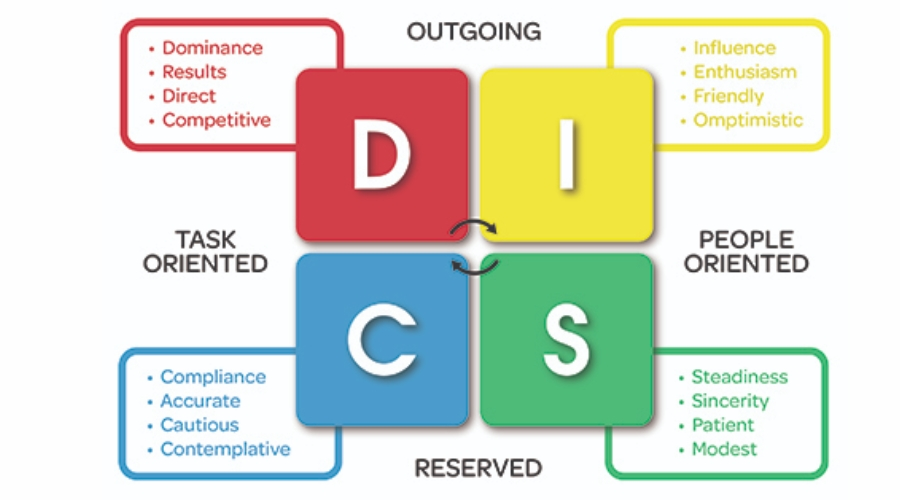
What’s the Difference Between DISC and DiSC?
Although the terms DISC and DiSC may look similar, they refer to two distinct things with different origins, ownership, and presentation styles. Understanding these differences is essential for anyone exploring personality assessments or searching for why the i lowercase in DiSC.
DISC (written in all capital letters) refers to the behavioral theory developed by William Moulton Marston in the 1920s. Marston’s original work was purely theoretical, meaning it was not tied to any specific test or proprietary tool.
Because the theory is in the public domain, many organizations have created their own DISC-based assessments under various brand names.
DiSC, on the other hand, is a trademarked assessment tool owned by Wiley. It is based on Marston’s theory but presented in a unique format, with the lowercase “i” serving as part of Wiley’s brand identity.
The use of a small “i” originated from a historical printing error during the Performax era, which Wiley later adopted as a recognizable brand element. This lowercase styling does not imply that the Influence style is less significant—it is simply a distinctive design choice.
| Criteria | DISC (Uppercase) | DiSC (Lowercase “i”) |
| Theoretical Origin | William Moulton Marston | Based on DISC theory, owned by Wiley |
| Typography | All caps DISC | Lowercase “i” |
| Ownership | Public domain | Registered trademark |
| Usage Scope | Various organizations and assessment tools | Exclusive to Wiley’s official products |
In short, DISC represents the open, theoretical model of human behavior, while DiSC refers to Wiley’s specific, copyrighted version—complete with its signature lowercase “i.” Understanding this distinction helps avoid confusion when choosing a behavioral assessment tool.
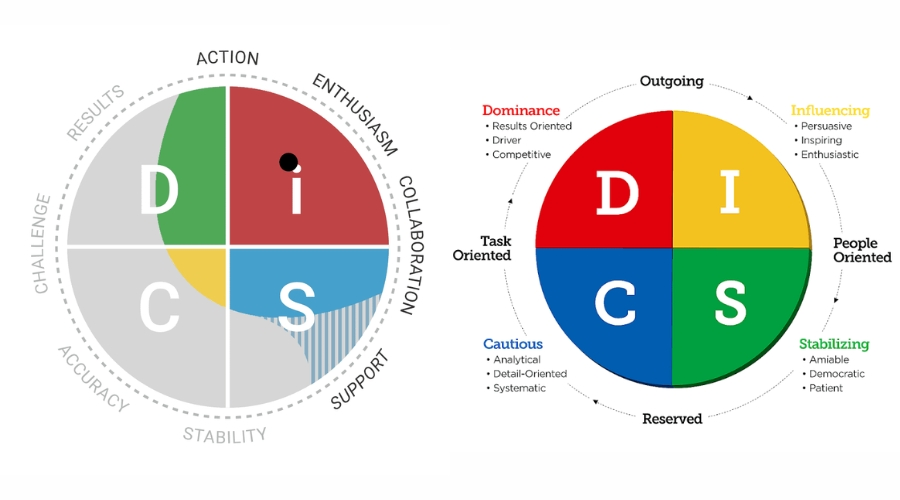
Discover Your Style – Take the DISC Test Today
If you’ve ever wondered why you respond to challenges the way you do, what truly motivates you, or how you can communicate more effectively with others, the DISC test is the perfect starting point.
By identifying your unique blend of Dominance, Influence, Steadiness, and Compliance, this quick yet powerful assessment offers valuable insights into your natural strengths and potential blind spots.
Whether you want to improve teamwork, boost leadership skills, or simply understand yourself on a deeper level, the DISC assessment provides a clear roadmap for personal and professional growth.
Taking the DISC test is simple, and the results are easy to understand, giving you practical strategies you can apply immediately in work, relationships, and everyday life.
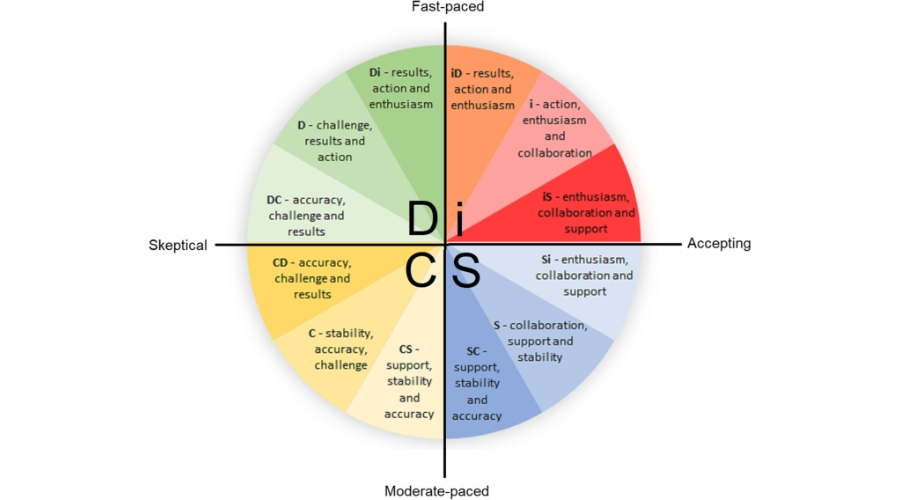
Conclusion
Ultimately, the story behind why is the i lowercase in DiSC is a testament to how a small printing error can evolve into an iconic branding element. Adopted during the Performax era and preserved by Wiley Publishing, the lowercase “i” has no bearing on the value or significance of the Influence style, it remains just as vital as the other three types. Instead, it serves as a unique visual marker that distinguishes Wiley’s DiSC from other tools. Ready to see your own style? Take the DISC test today and discover where you shine.
Read more to find out why this is the rarest DiSC personality type!
FAQs
1. Why does Wiley keep the lowercase “i” today?
Wiley kept the lowercase “i” because it had become a recognizable and trusted branding element. By the time Wiley acquired the assessment from Performax, the lowercase “i” had been in use for years, making it a symbol of authenticity for their DiSC products. This branding decision is central to why the i lowercase in DiSC remains today—it’s now part of the product’s identity and history.
2. Does the lowercase “i” change the meaning of DiSC?
No, the lowercase “i” does not change the meaning or purpose of the DiSC assessment. The four letters still represent the same personality dimensions—Dominance, Influence, Steadiness, and Conscientiousness—rooted in DISC theory created by William Moulton Marston. The lowercase styling is strictly a visual branding decision adopted by Wiley Publishing. People often search for why the i lowercase in DiSC, thinking it might carry a deeper psychological meaning, but it doesn’t. The assessment’s methods, scoring, and interpretation remain the same regardless of the “i” styling.
3. Does the lowercase “i” affect test results?
Not at all. The lowercase “i” has no effect on how the assessment is structured, scored, or interpreted. It’s purely a stylistic and branding choice. People who search for why the i lowercase in DiSC sometimes assume it changes the test’s meaning, but the science behind the tool remains consistent. Whether uppercase or lowercase, the model still measures Dominance, Influence, Steadiness, and Conscientiousness accurately.
4. Can anyone use the lowercase “i” in DiSC?
No. The lowercase “i” version is part of Wiley Publishing’s registered trademark. While anyone can use DISC theory to create a personality assessment tool, only Wiley and licensed partners can use “DiSC” with its distinctive lowercase “i.” This is one of the reasons why the i lowercase in DiSC matters—it’s not just a design quirk, but also a brand identifier that signals the test is an official Wiley product.


Don't Let Your Potential Stay Hidden!
Take the DISC test today and discover your unique 'YOU', with deep insights into your true personality and potential.

Represents your instinctive behaviors and desires.
Shows the behavioral tendencies you think you should exhibit in specific situations.
Related articles
You may also be interested in
 DISCAug 12, 2025
DISCAug 12, 2025How Much Does a DISC Assessment Cost In 2025?
How much does a DISC assessment cost in 2025? Learn about current pricing, free vs. paid options, and team packages in this updated guide.
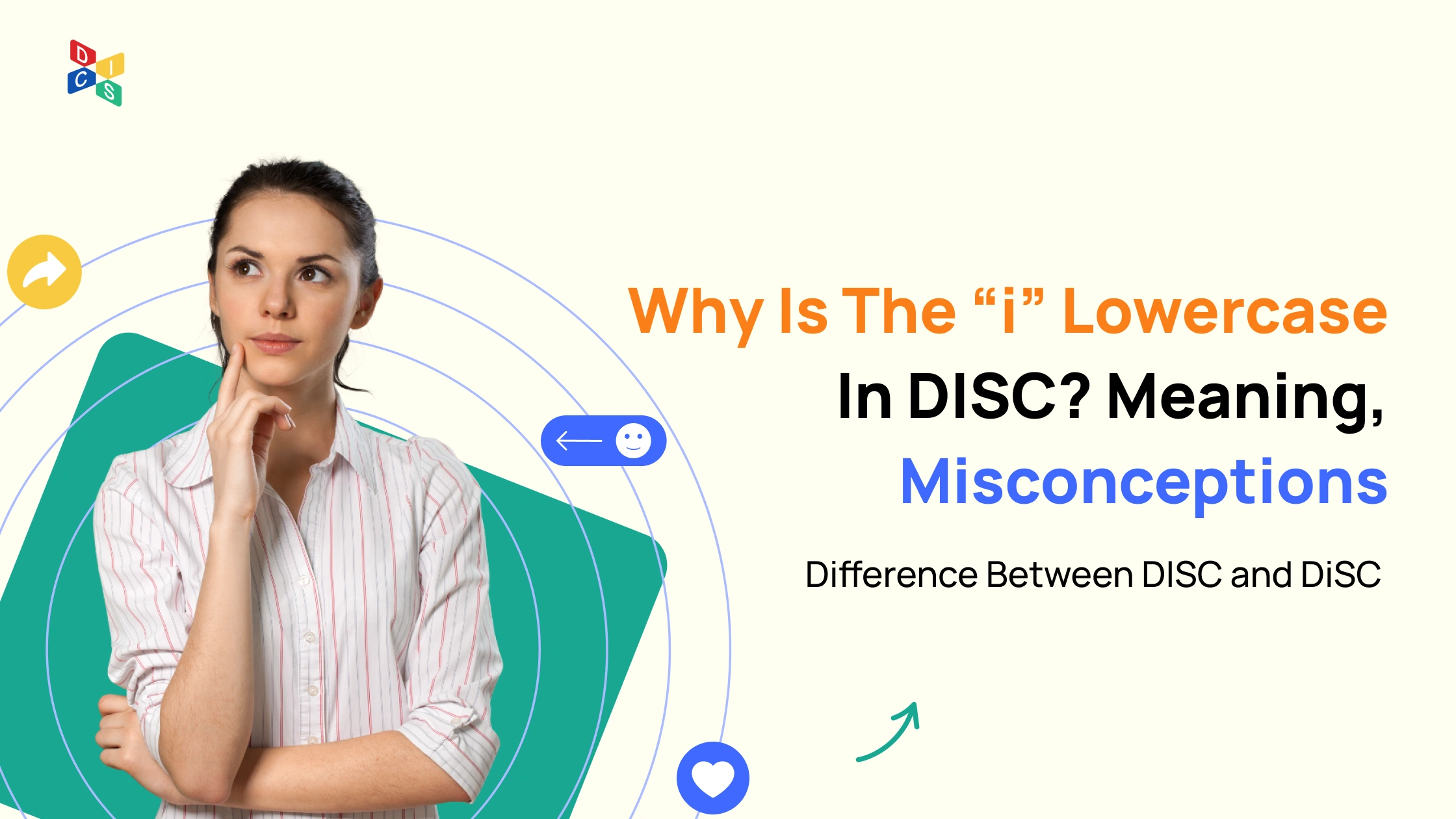 DISCAug 11, 2025
DISCAug 11, 2025Why Is the “i” Lowercase in DISC? Meaning, and Misconceptions
Why is the “i” lowercase in DISC? Discover the history, branding origins, and myths behind the styling choice used in official DiSC assessments.
 DISCAug 05, 2025
DISCAug 05, 2025How To Apply The DISC Personality Test To The Workplace
How to apply the DISC personality test to the workplace? Use this tool to improve your team’s communication, performance, and leadership.

